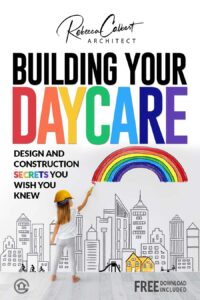In “What Daycare Toys Are Required For A Toddler Classroom”, the focus is on helping you understand and curate an interactive, fun, and safe environment for toddlers. It’s an essential read to discover which toys you need to have in a toddler classroom at daycare, and why exactly these specific toys are so fundamental. From an educational standpoint, this guide draws on expert advice and research to help you make informed choices, benefitting not only the enjoyment of the toddlers, but their development too.
Understanding Toddlers’ Developmental Needs
When dealing with toddlers, their developmental needs are key to facilitating their growth and learning. Unlike adults, toddlers engage with the world in a more hands-on, experiential way. Everything is new and exciting and toys play a crucial role in this journey of exploration.
The Importance of Age-Appropriate Toys
Age-appropriate toys are crucial for toddlers’ early development. These toys cater to specific developmental stages, from language skills and motor coordination to emotional regulation, making them an integral part of toddlerhood. By engaging with such toys, toddlers can practice their skills in a safe and controlled environment while also having fun.
How Toys Contribute to Toddler Development
Toys do more than just entertain; they teach. Through toys, toddlers learn about cause and effect, hone their motor skills, practice language, discover their interests, and engage with the world. For instance, stackable toys enhance motor skills and comprehension of proportions; stuffed animals encourage empathy and caretaking behaviors.
The Influence of Toys on Sensory, Motor, and Cognitive Growth
Sensory toys like textured balls or rattles help in developing fine motor movement and exploring sensory boundaries. Motor development is fostered by toys that involve grip, manipulation or movement like cars, balls, and building blocks. Cognitive growth is stimulated by toys that challenge a toddler’s thinking and problem-solving such as simple puzzles or shape sorters.
The Necessity of Building Blocks
Building blocks are one of the quintessential childhood toys. Offering countless possibilities in one toy, blocks are foundational to toddler classrooms and hold a world of benefits for your little ones.
How Blocks Encourage Spatial Awareness and Fine Motor Skills
Building with blocks stimulates spatial intelligence by requiring toddlers to think about location, shape, and space. After all, a tower will fall if blocks are not balanced correctly! They also develop fine motor skills and hand-eye coordination as toddlers grasp, stack, and balance the blocks.
Different Types of Blocks Suitable for Toddlers
There is a variety of toddler-friendly blocks available – wooden, plastic, foam, and magnetic. While the traditional wooden blocks are often the go-to, foam and magnetic blocks provide a different tactile experience and challenge. Always ensure that the blocks are big enough to avoid choking hazards.
Safe Practices for Using Blocks in a Classroom Setting
Using a separate area for block play prevents tripping and scattering, and overseeing these activities can ensure that blocks are used appropriately. Teaching toddlers to pack away after play helps prevent accidents and instills good practices.
Value of Pretend Play Toys
Pretend play is a key part of child development. Encouraging imaginative play supports cognitive, social, and emotional well-being.
The Role of Pretend Play in Nurturing Creativity and Social Skills
Pretend play fosters creativity as children develop stories and scenarios. It also improves social skills as they act out different roles, learn to negotiate, and understand other people’s perspectives.
Assortment of Pretend Play Toys Like Dollhouses, Kitchen Sets, and Doctor Sets
There is a wealth of pretend play toys available. Dollhouses, kitchen sets, and doctor sets are just a few examples. They enable children to explore different roles and situations, leading to more complex and creative play.
How to Manage Pretend Play Sessions in a Daycare Setting
Pretend play sessions should be supervised to ensure safe and inclusive behavior. The aim is not to direct the play, but to let it evolve naturally. Observation during these sessions can provide insights into a child’s interests and interpersonal skills.
Incorporating Art and Craft Materials
Art and craft work is not only fun but also beneficial. Creating something unique bolsters self-esteem and provides a sense of accomplishment.
Emphasizing Inculcation of Art and Craft Skills
Art and craft activities foster creativity, encourage self-expression, and develop fine motor skills. Activities like cutting, pasting, drawing, and coloring stimulate hand-eye coordination along with cognitive abilities.
Safe and Non-Toxic Art and Craft Materials Suitable for Toddlers
When selecting art materials for toddlers, safety is paramount. Opt for non-toxic products like crayons, watercolor paints, and washable markers. Also, include larger tools like big brushes and safety scissors preferable for their little hands.
Ideal Setup for an Art and Craft Corner in a Daycare Classroom
Design an inspiring and accessible art corner. This can have a creative display of materials, easy-to-clean surfaces (including flooring), and space for displaying the children’s creations.
Importance of Musical Toys
Making music is pure joy for toddlers. It fosters creativity, coordination, and early literacy skills.
Benefits of Musical Toys in Language and Rhythm Development
Musical toys engage toddlers in creating sounds and rhythms, facilitating auditory discrimination and coordination. Exploring musical tools also boosts language development since rhythm and cadence play key roles in language acquisition.
Appropriate Musical Toys for Toddlers
From xylophones and drum sets to simple musical shakers, the choices are endless. However, make sure the toys are durable, easy-to-use, and safe for toddlers to explore without constant adult supervision.
Ideas to Incorporate Musical Play into the Daycare Scheduling
Scheduled music times for free play with musical toys, or directed music activities where children learn about different sounds and rhythms, can be incorporated into the daily routine.
Benefits of Puzzle Games
Puzzles are a fantastic tool for toddler development. They’re not only entertaining but also educational.
Learning Opportunities Offered by Puzzles
Puzzles offer a host of learning opportunities. They enhance visual spatial ability, improve concentration, encourage problem-solving, and reward patience and persistence.
Selection of Age-Appropriate Puzzles
Simple wooden puzzles with large pieces, puzzles with fewer pieces, and puzzles with knobs on pieces for easy grasping are perfect for beginners.
Integration of Puzzle Games into Classroom Activities
Puzzle time can be integrated into the daily activities. It can be an independent activity for individual focus and problem-solving or a group activity to promote cooperation.
Indoor Active Play Toys
Physical play is critical for a toddler’s physical health and development.
Why Active Indoor Play is Essential for Toddlers
Indoor active play promotes gross motor skills such as crawling, jumping, and climbing. It’s also vital for muscle development, coordination, and even basic health and mood regulation.
Safe Indoor Active Play Toys
Toss-and-catch toys, indoor slides and soft climbers, and pop-up tunnels are excellent options for safe and engaging active play indoors.
Useful Strategies for Managing Active Play
Create a specified area for active play to minimize disruptions. Supervise playtime, encourage turns, and ensure the play area is free of hard or sharp objects.
Inclusion of Books in Daycare Classrooms
Books are the gateway to a world of imagination and knowledge for toddlers. Incorporating books into daycare classrooms is very beneficial.
Significance of Early Literacy
Early exposure to books and reading nurtures a love for literature, builds vocabulary, and sharpens cognitive abilities. Storytime can also be a bonding experience and a relaxing routine in a toddler’s busy day.
Recommended Books for Toddlers in Daycare
Books with bright, bold illustrations, repetitive text, or sensory features are especially engaging for toddlers. Classic picture books, rhyming tales, and interactive board books make fantastic additions to a toddler’s reading list.
Creating an Engaging Reading Corner in the Classroom
Having a designated, comfortable reading corner can make reading time something to look forward to. Fill it with cushions, shelving suitable for small hands, and a diverse selection of books.
Toys That Promote Sensory Play
Sensory play is an essential part of a toddler’s development and learning journey.
What is Sensory Play and why is it Important
Sensory play involves activities that stimulate the child’s senses. It is important as it aids in the development of nerve connections in the brain and encourages the development of sensory attributes like touch, taste, smell, sight, and sound.
Toy Options that Promote Sensory Play
Toys such as sand and water play sets, sensory balls, playdough, and sensory bins with different materials encourage sensory exploration.
Guidelines for Facilitating Sensory Play
Sensory play should be closely supervised to prevent accidental ingestion or other safety issues. Always strive to provide a variety of materials to allow exploration of different textures, temperatures, sizes, and shapes.
Compliance with Licensing Requirements
While filling the classroom with inviting toys is exciting, it’s crucial to also be mindful of the licensing requirements.
Understanding Local Licensing Requirements for Daycare Toys
Each region has its own set of rules about what is considered safe and suitable for a daycare environment. This includes size, material, and toxicity. Understanding these will ensure that your daycare complies with all safety standards.
Adhering to Specifications for Toy Selection
Toys should be selected based on age-appropriateness, safety standards, and developmental benefits. Additionally, they should comply with local licensing regulations.
Periodic Reviews to Ensure Compliance
Regular audits of the toys in your daycare center can help ensure that they are in good condition and still meet licensing regulations. Any that do not, or are damaged should be removed.


